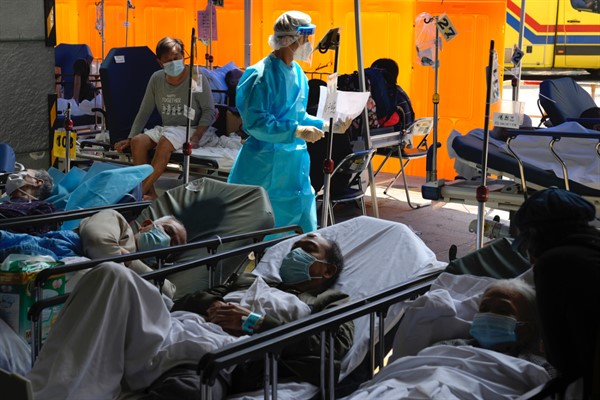After two years of controlling the coronavirus pandemic with stringent border restrictions and social distancing measures, Hong Kong’s zero-COVID policy has collapsed under the weight of the omicron variant. In the past few months, the city has experienced its largest outbreak of coronavirus cases to date, with tens of thousands of daily infections and a total of over 500,000 recorded cases as of Tuesday. The fatality rate has also soared, as the coronavirus ravages nursing homes in the city and afflicts its large population of undervaccinated elderly residents.
Medical experts have attributed the spike in cases to a series of policy missteps, but at the heart of Hong Kong’s disastrous pandemic response is a broader crisis of governance.
Beijing’s crackdowns on civil liberties and political freedoms in Hong Kong—particularly since the adoption of the national security law in 2020—robbed the city of the political autonomy needed to formulate policies that best serve the interests of its residents. Instead, Hong Kong’s puppet leaders allow political calculations to override science and the public interest. The restrictive, ineffective pandemic measures threaten Hong Kong’s reputation as an international financial hub. More importantly, it puts the lives of its people, the majority of whom cannot afford to leave for greener pastures elsewhere, at unnecessary risk.

